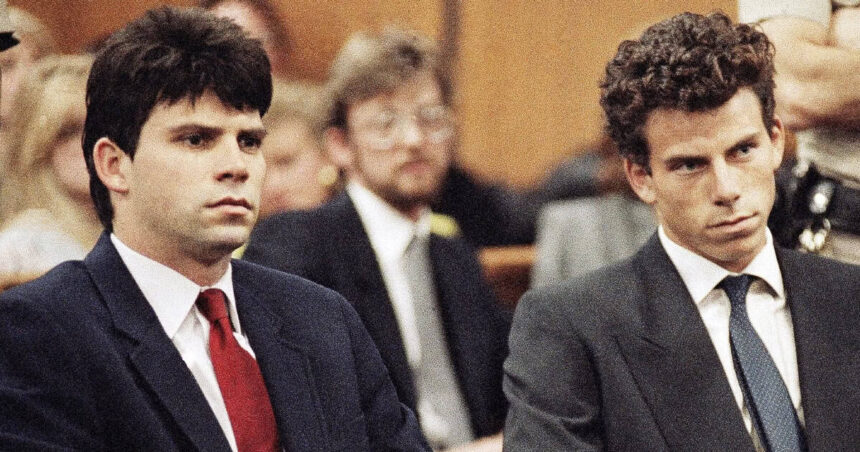The complex saga of Lyle and Erik Menendez, the brothers infamously convicted for the chilling murder of their parents in 1989, has taken a noteworthy turn. Recently, their sentences have been amended to allow for the possibility of parole after 50 years to life, a significant change from their original harsh punishment that offered no hope for release.
As of Tuesday, this pivotal announcement has reignited a conversation around the Menendez brothers, whose case has seen a resurgence in public interest—largely fueled by the release of the latest season of Ryan Murphy’s Monsters on Netflix last September. This series has not only revisited their grim story but also brought it back into the modern media spotlight, especially as discussions about their situation gained traction in October. The brothers’ ongoing quest for freedom became even more pronounced against this backdrop of renewed scrutiny.
Yet, the road ahead remains uncertain. The state of California’s parole board will ultimately decide their fate—a process sure to capture headlines and provoke debate. Much like their highly publicized trials, memorably referred to as the “trials of the century,” the upcoming parole hearing is bound to reignite discussions about their crimes, the moral implications of their punishment, and whether they truly deserve another opportunity at life outside prison.
As they approach their third decade of incarceration, Lyle, now 57, and Erik, 54, have emerged as surprisingly sympathetic figures for some. Although they were just 21 and 18 at the time of their parents’ murder, advocates suggest they were also victims—products of a tumultuous family environment that was inadequately addressed by the justice system during their sensational trials. Their relatives and supporters have actively voiced their backing, eager to highlight the brothers’ transformation and personal growth through the years.
In a recent hearing, Lyle expressed his remorse profoundly, stating, “On Aug. 20, 1989, I killed my mom and dad. I make no excuses and also no justification. The impact of my violent actions on my family … is unfathomable.” This powerful admission adds layers to the ongoing dialogue surrounding their case and raises essential questions about responsibility, regret, and the potential for redemption.
As we reflect on this landmark moment in their lives, it begs the question: should Lyle and Erik Menendez be granted a second chance at freedom, or do their actions warrant a lifelong sentence behind bars? The discourse surrounding their future remains as contentious and complex as ever.























